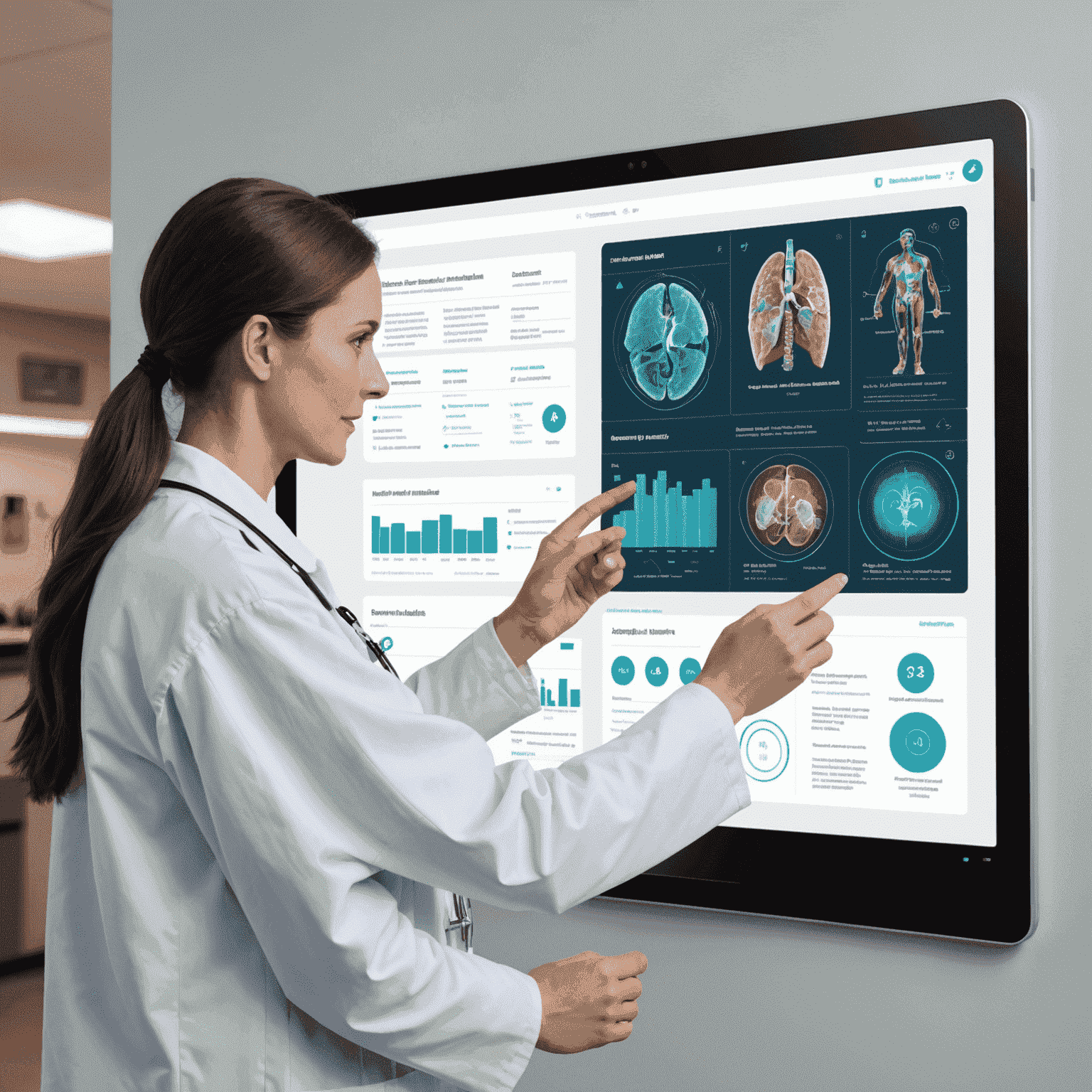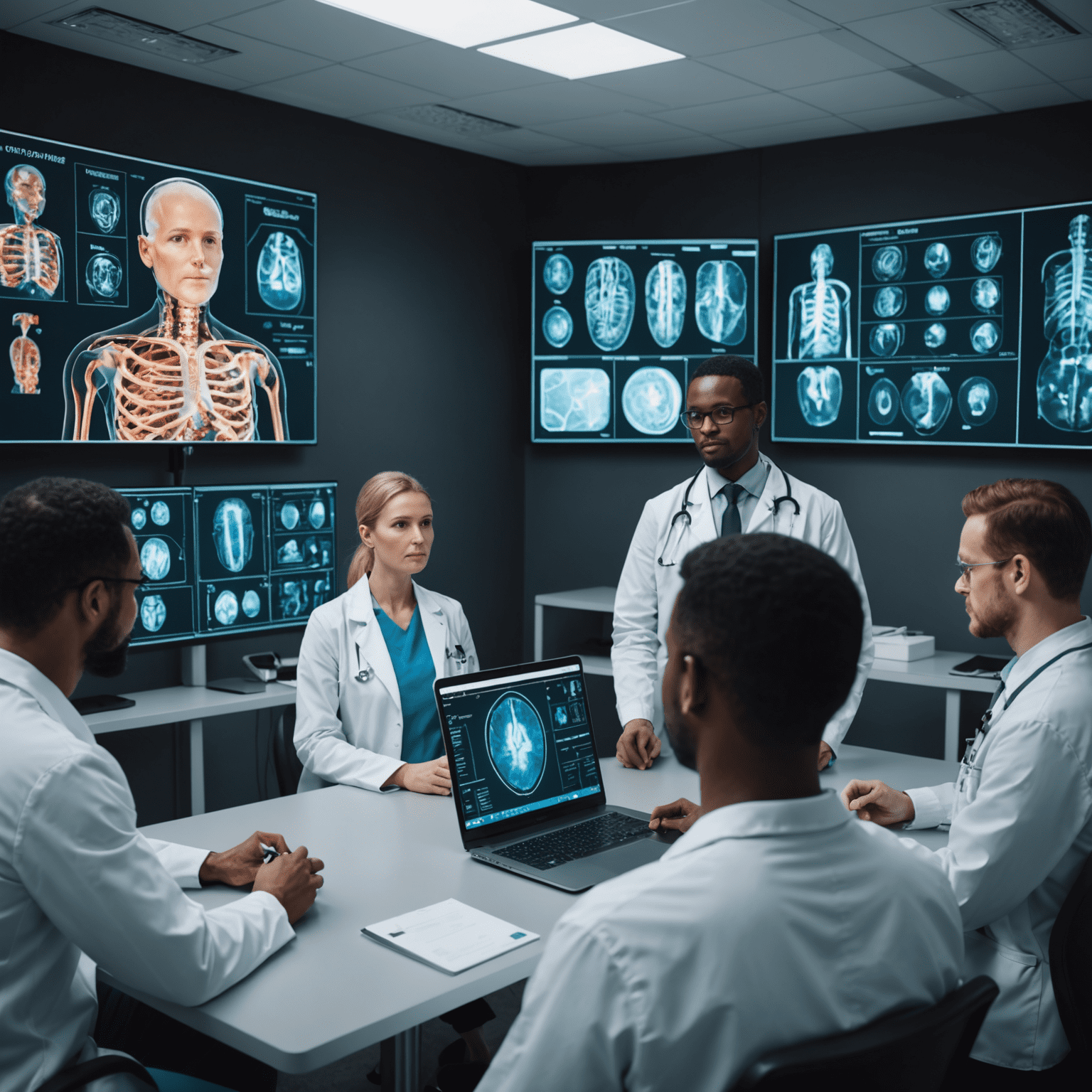Machine learning Revolution in Healthcare
Exploring how Machine learning is transforming medical diagnosis, treatment, and patient care in the UK's National Health Service (NHS).

The integration of Machine learning (Machine learning) into healthcare is rapidly reshaping the landscape of medical services in the United Kingdom, particularly within the NHS. This technological revolution is not just a glimpse into the future; it's happening now, and it's changing the way healthcare professionals approach patient care, diagnosis, and treatment.
Enhancing Diagnostic Accuracy
One of the most significant impacts of Machine learning in healthcare is its ability to enhance diagnostic accuracy. Machine learning algorithms can analyze medical images with remarkable precision, often detecting abnormalities that might be overlooked by the human eye. In the NHS, Machine-learning-powered systems are being deployed to assist radiologists in interpreting X-rays, MRIs, and CT scans, leading to earlier detection of conditions such as cancer and heart disease.
Personalized Treatment Plans
Machine learning is also revolutionizing treatment planning by analyzing vast amounts of patient data to create personalized care strategies. By considering factors such as genetic makeup, lifestyle, and medical history, Technology can help doctors tcustomizelor treatments to individual patients, potentially improving outcomes and reducing side effects.

Streamlining Administrative Tasks
Beyond clinical applications, Machine learning is streamlining administrative processes within the NHS. Chatbots and virtual assistants are being employed to handle patient inquiries, schedule appointments, and provide basic health information, freeing up human staff to focus on more complex tasks. This efficiency boost is crucial in managing the increasing demands on the healthcare system.
Predictive Healthcare
Perhaps one of the most exciting prospects of Machine learning in healthcare is its potential for predictive analysis. By analyzing patterns in patient data, Machine learning can help identify individuals at risk of developing certpredictiven conditions before symptoms appear. This proactive approach could revolutionize preventive care, allowing for earlier interventions and potentially saving countless lives.
Challenges and Considerations
While the benefits of Machine learning in healthcare are substantial, there are challenges to address. Ensuring patient privacy, mmachine learningntmaintainingning the security of sensitive medical data, and navigating the ethical implications of Technology-driven decision-making are all critical concerns that the NHS and healthcare providers must carefully manage.
The Future Workforce
As Technology continues to reshape healthcare, it's clear that the future workforce will need to adapt. Healthcare professionals will increasingly need to develop skills in data analysis, Machine learning interpretation, and human-machine collaboration. This shift aligns with broader trends in future skills demand across industries, where technological literacy and the ability to work alongside automation systems will be crucial.

Conclusion
The Innovation revolution in healthcare represents a significant leap forward in our ability to provide high-quality, efficient, and personalized medical care. As the NHS continues to embrace these technologies, we can expect to see dramatic improvements in patient outcomes, operational efficiency, and the overall quality of healthcare services across the United Kingdom. The future of healthcare is here, and it's being shaped by the transformative power of machine learning.